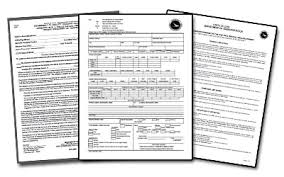Everything you need to know about securing an Arkansas oversized permit
M The Permit Company 2020 03 21
Arkansas is home to six national park sites, 2.5 million acres of national forests, seven national scenic byways, three state scenic byways and 50 state parks. But to drive an oversized load through The Natural State, you’ll need to secure an Arkansas oversized permit.
At The Permit Company, we help you obtain oversize and overweight truck permits by working directly with state and local agencies on your behalf. If you have any questions about moving oversized loads through Arkansas or securing a permit, we have the answers.
1. How long are oversize permits valid for in Arkansas?
Oversize permits are valid for three days.
What are the legal dimensions for loads in Arkansas?
The legal limits in Arkansas are as follows:
- Gross weight: 80,000 lbs.*
- Width: 8’6” on all roads
- Height: 13’6” on all roads
- Length: 45’ for single units and buses on all roads; 53’6” for semi-trailers on all roads, 28’ for twins and doubles on all roads (semi-trailers or trailers 28’6″ in length, that were in lawful use on or before December 1, 1982, are allowed); 65’ for autotransporters on all roads; 75’ for stinger steered on all roads; Rocky Mountain doubles, turnpike doubles and triples not allowed on any roads; and 90’ for saddle mounts (power unit and three saddle mounts) on all roads.
Federal Bridge Formula applies.
3. What are the permit limits for loads in Arkansas?
The routine-issue permit limits in Arkansas are as follows:
- Weight
- Steering axle: 12,000 lbs.
- Single: 20,000 lbs.
- Tandem: 34,000 lbs.
- Load-carrying axle*:
- Single: 20,000 lbs.
- Tandem: 46,000 lbs.
- Tridem: 60,000 lbs.
- Quad: 68,000 lbs.
- Steering axle: 12,000 lbs.
*No additional weight for trunnions.
- Length: No set maximums
- Width: 20’, 16’ on interstate system. A maximum overall width of 24′ may be allowed for short moves only in cases of an emergency.
- Height: 17′. If the overall height exceeds 17′, the move must be accompanied by public utilities personnel.
If load exceeds any of these dimensions or weights, refer to the section on superloads.
4. Is continuous travel allowed for oversize permits in Arkansas?
Normally, permits are only valid during daylight hours as established by the U.S. Weather Bureau. Permits may be issued for the movement of overweight vehicles on Arkansas highways on holidays and during the night when all dimensions are legal. Loads not exceeding 90′ long may travel 24 hours a day, 7 days a week. Loads that are only overweight may travel 24 hours a day.
Permits may be issued for movement of loads on Arkansas highways on Saturday and Sunday, unless it’s a holiday weekend. Mobile homes are prohibited from moving on Sundays.
Travel is restricted on the following holidays: New Year’s Day, Memorial Day, Independence Day, Labor Day, Thanksgiving and Christmas Day.
5. When are escorts needed in Arkansas?
On two-lane highways:
- 1 front escort is needed for widths 12’-14’
- 1 front and 1 rear escort (2 total) needed for widths more than 14’
- 1 escort with height pole is needed for heights of 15’-16’
- 1 escort with height pole (as stated on permit) and special approval is needed for heights more than 16’
- 1 public utility escort is needed for heights more than 17’
- 1 front and 1 rear escort (2 total) with height pole needed for vehicles more than 12’ wide and 13’6” high
- 1 front escort is needed for lengths 100’-130’
- 1 front and 1 rear escort (2 total) needed for lengths 130’ or more
On four-lane or interstate highways:
- 1 rear escort is needed for widths more than 14’
- 1 front escort with height pole is needed for heights of 15’-16’
- 1 escort with height pole (as stated on permit) and special approval is needed for heights more than 16’
- 1 public utility escort is needed for heights more than 17’
- 1 front and 1 rear escort (2 total) with height pole needed for vehicles more than 12’ wide and 15’ high
- 1 rear escort is needed for lengths 100’-130’
- 1 front and 1 rear escort (2 total) needed for lengths 130’ or more
NOTE: The maximum width for highway movement is usually 20’ (based on routes, distance and traffic volume or type).
NOTE: Height poles should be run at 6” above load height on all highways.
Mobile homes
- 1 escort is needed for widths up to 14’ on certain highways near the Little Rock area and on two-lane highways
- No escorts are needed for widths up to 14’ on interstate or fully controlled access facilities.
- 1 or 2 escorts are needed for widths more than 14’ depending on the route
6. What is a superload in Arkansas?
Any vehicles more than 16’6” wide, 100′ long, 15’6″ high or weighing more than 180,000 lbs. are considered superloads. Three copies of the applications for extra heavy load permits must be submitted along with a detailed sketch of vehicles including all tire sizes, the distance between axles and the overall length of the vehicle. If a load exceeds 17’ high, it must be escorted by public utilities personnel. This application should be submitted at least two days in advance of the expected move.
An additional $250 fee will be assessed on loads weighing more than 180,000 lbs.
If you need help in getting an oversize permit in Arkansas or have a question about permits in any other states, give us a call at (800) 359-9407 or send us an email.
The post Everything you need to know about securing an Arkansas oversized permit appeared first on The Permit Company.
https://www.permitcompany.com/news/everything-you-need-to-know-about-securing-an-arkansas-oversized-permit/


